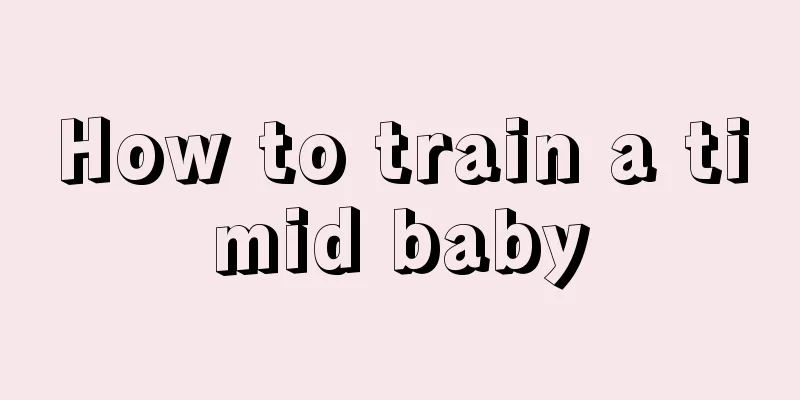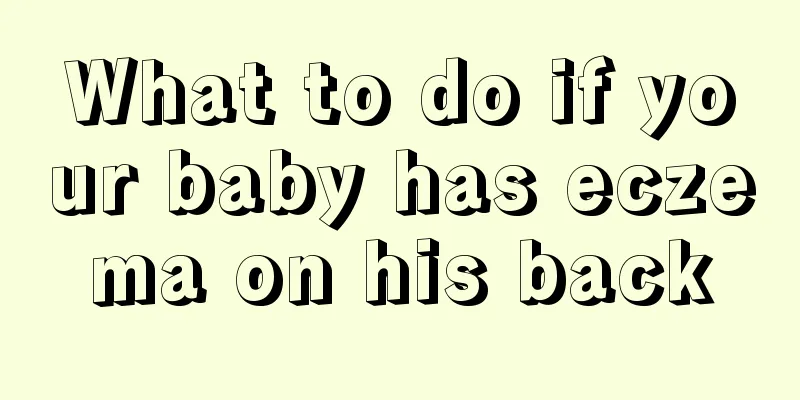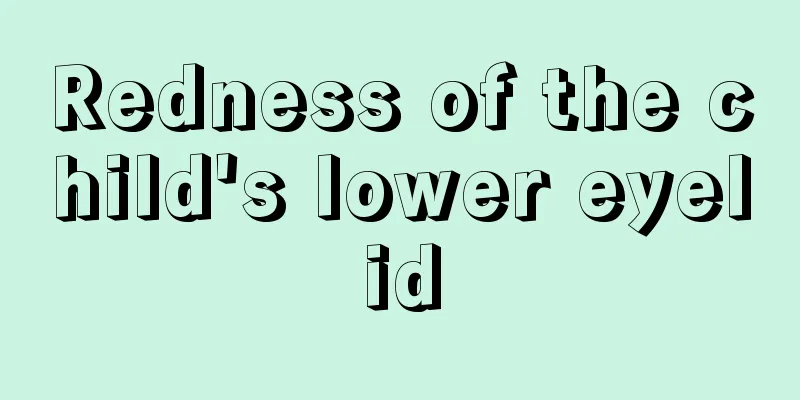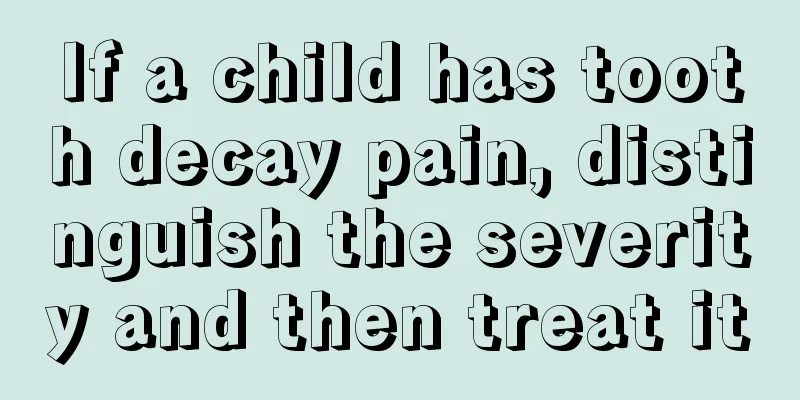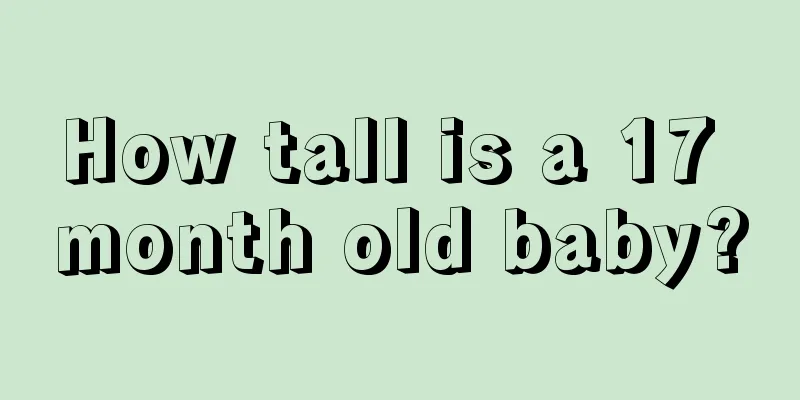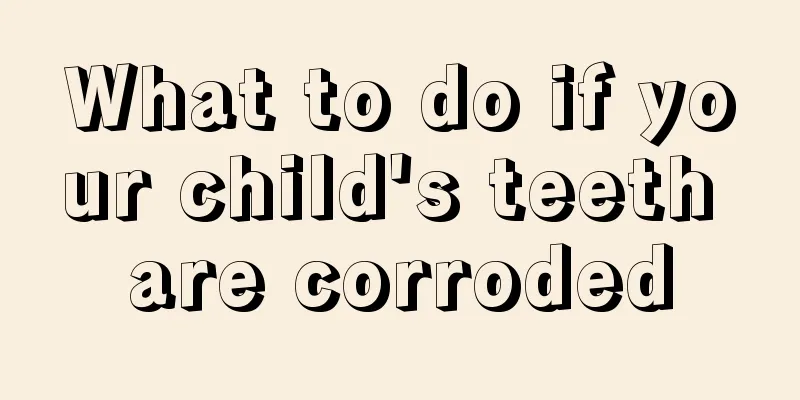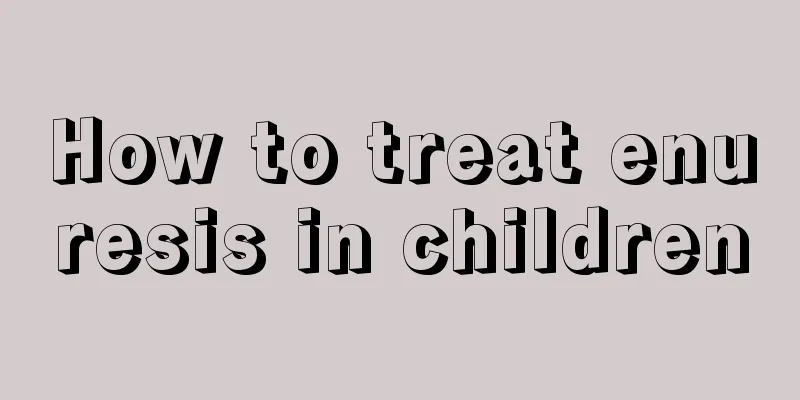What should I do if my six-month-old baby has a fever and diarrhea?
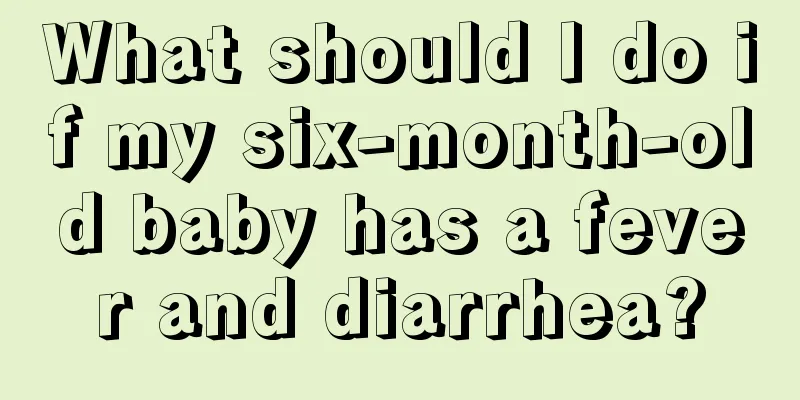
|
It is common for children to have fever or diarrhea. Family members must pay attention and keep track of their children's health status at all times. Compared with the common cold, fever is a more serious problem. Once a high fever occurs, it will cause other health risks. Moreover, diarrhea will also affect the development of the child's gastrointestinal tract. So what should I do if my six-month-old baby has a fever and diarrhea? Regardless of whether the diarrhea is caused by bacterial infection or viral infection, in addition to medication, parents should also adjust their children's diet, give them light and easy-to-digest food or liquid food, and avoid eating cold, spicy or greasy food. Viral diarrhea can be caused by digestive tract and respiratory tract infections. The onset is generally acute, with symptoms of upper respiratory tract infection such as cough and runny nose. Children often have fever, which can be as high as 39-40 degrees Celsius. When the disease occurs, watery or egg-drop-like stools will be discharged, often accompanied by mucus, but without a fishy smell. For this type of diarrhea in children, antiviral drugs are usually given for treatment. The children can take ribavirin and antiviral oral liquid while taking montmorillonite powder or Mommy Love as auxiliary treatment. During the period of diarrhea, due to repeated diarrhea, feces can easily irritate the skin of the child's buttocks, causing the child to have a red buttocks. Parents should pay attention to the cleanliness and care of the child's buttocks. Rinse the buttocks and perineum with clean water after each defecation, but do not use alkaline cleansers. If your child has frequent diarrhea, timely infusion treatment is required to replenish water and electrolytes to avoid dehydration. If the child's fever is less than 38.5 degrees, do not rush to give the child medicine. You can use physical cooling methods. If the fever exceeds 38.5 degrees, you can take antipyretic drugs under the guidance of a doctor. Give your child plenty of water during this period. For diarrhea caused by bacterial infection, under the guidance of a doctor, you can give your child antibiotics such as cephalosporin and azithromycin, plus auxiliary treatments such as Mommy Love and montmorillonite powder that regulate the flora and stop diarrhea. If the diarrhea is severe, intravenous fluid therapy is also needed to prevent the child from becoming dehydrated. Give your child plenty of fluids to drink during diarrhea. Through the above introduction, everyone is clear about what to do if a six-month-old baby has a fever and diarrhea. No matter how serious the child's illness is, we need to be vigilant, help the child regulate his body in daily life, and make reasonable combinations when adding complementary foods. It is still very important to improve the child's digestive function. |
<<: What should I do if my baby has a fever and diarrhea while teething?
>>: How to prevent children from having a fever and seizures?
Recommend
How to clean your baby's mouth
Some parents often have this misunderstanding, th...
How to solve the problem of phlegm in children’s throat?
Some mothers find that their babies make a whirri...
How to coax a baby to fall asleep quickly
How to make the baby fall asleep quickly is a hea...
Why is there blood in the stool of a five-month-old baby?
Every baby has different physical characteristics...
What to do if your baby coughs and has a lot of eye mucus
There are always some situations that happen with...
What to feed your children to make them grow taller
Whether every child can develop normally is a mat...
What is the reason for birthmarks in the fetus?
Many parents will find that their children have b...
What is the development standard of a four-month-old girl?
What every parent is most worried about is the ba...
What are the early symptoms of encephalitis in children?
Encephalitis is a very serious disease. If it occ...
Why is my child short of breath?
Children are the core of a family. They are raise...
What to eat when a child has a fever
In the new 21st century, every family pays more a...
Causes of low creatinine in children
Low creatinine in children is mostly caused by ma...
Why does a newborn baby cry even though he is full?
Newborns cannot eat when they first come into thi...
The most common methods used by families to reduce fever in young children
Fever in young children is a relatively common di...
My baby hasn't had a bowel movement for four days and keeps farting
We all know that babies are the future of every f...
